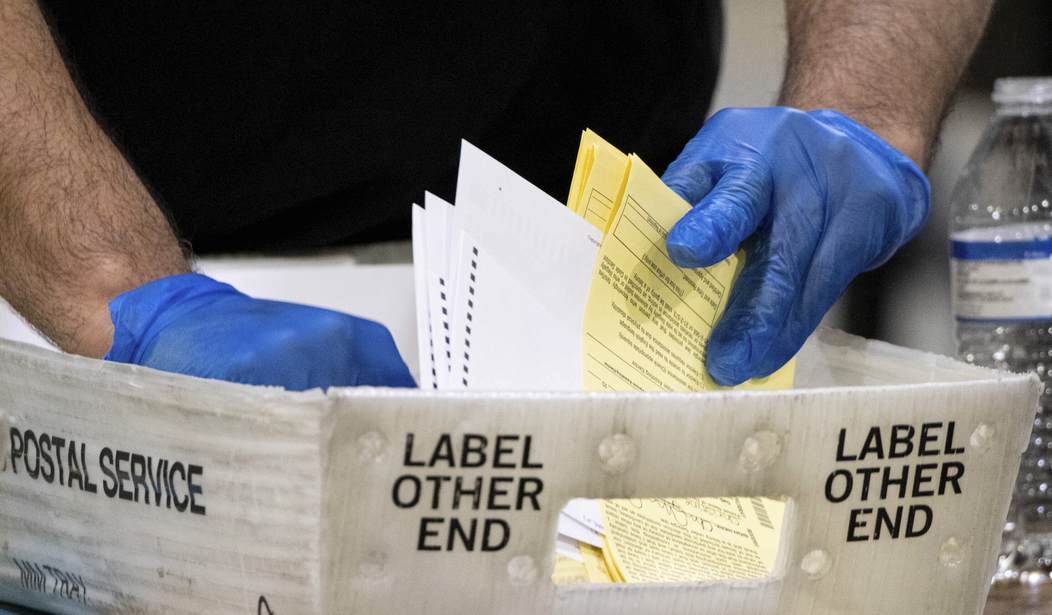Many Republicans in swing states have not promised to “accept” the results of elections. Naturally, Democrats view this travesty as an “assault on democracy” and a “threat to the political order.”
What did they call it in 2000 when George W. Bush defeated Al Gore for the presidency? It was a “sham,” a “fraud,” a “travesty.”
- Hillary Clinton, more than once, questioned the legitimacy of the 2000 election.
- In 2002, Clinton said Bush had been “selected” and not elected president.
- In 2016, Clinton said that the Supreme Court “took away a presidency” in Bush v. Gore.
- Then-President Bill Clinton in 2001 claimed that Gore actually won the election, suggesting that all the votes in Florida were not counted and that the Supreme Court had altered the outcome.
- Clinton: “The only way [Republicans] could win the election was to stop the voting in Florida.”
In fact, in April of 2001, two Democratic newspapers — the Miami Herald and USA Today — conducted their own count of 65,000 disputed ballots that Democrats claim weren’t counted and found that Bush’s margin of victory tripled to over 1,500 votes.
Why is denying the outcome of an election okay when Democrats do it, but it’s a threat to democracy if Republicans do it?
The point isn’t who won the 2000 presidential election. The point is that Democrats still refuse to accept the results. Now we have Republicans in four swing states who are refusing to say — in advance — that they will accept the results of the 2022 election. And the left-wing media is claiming that it’s a sign our democracy is in peril.
Acceptance of an electoral outcome — win or lose — was once a virtual certainty in American politics, although there have been exceptions. In 2018, Georgia Democratic gubernatorial nominee Stacey Abrams cited voter suppression as a reason for refusing to concede defeat to Republican opponent Brian Kemp. But unlike Trump, Abrams never sought to overturn the certified result or foment an insurrection.
In competitive races for governor or Senate in Arizona, Florida, Kansas, Michigan, New Hampshire, North Carolina, Pennsylvania and Texas, GOP candidates declined to say that they would accept this year’s result.All but two — incumbent senators Ron Johnson of Wisconsin and Marco Rubio of Florida — have publicly embraced Trump’s false claims about 2020, according to a Post analysis.
The Post has a very short memory if it didn’t mention 2000 and the Democrats’ assault on the electoral process. They wanted to keep counting and counting in Florida until the result they desired was achieved. When the Supreme Court finally called a halt to their gambits, there arose the Democratic legend — egged on by Al Gore and the Clintons — that the 2000 presidential election was “stolen.”
Why wasn’t questioning the results of the 2000 election as bad as Trump questioning the results of the 2020 election? The answer is obvious. But now, an extra element of hysteria has been added. If we don’t elect Democrats, we can kiss our democracy goodbye. And the “evidence” that Democrats are using is that Republican “election deniers” are in positions of influence in some battleground states and will look to steal the election.
Running in a year in which G.O.P. voters are energized by fierce disapproval of President Biden, these newly minted Republican nominees for secretary of state and governor have taken positions that could threaten the nation’s traditions of nonpartisan elections administration, acceptance of election results and orderly transfers of power.
Each has spread falsehoods about fraud and illegitimate ballots, endorsing the failed effort to override the 2020 results and keep former President Donald J. Trump in power. Their history of anti-democratic impulses has prompted Democrats, democracy experts and even some fellow Republicans to question whether these officials would oversee fair elections and certify winners they didn’t support.
Apparently, questioning election results and “spreading falsehoods about illegitimate ballots” — as Democrats did in the 2000 election — is only bad some of the time. And it only “threatens the nation’s traditions of nonpartisan elections administration, acceptance of election results, and orderly transfers of power” when Republicans are in charge of the ballot counting.










